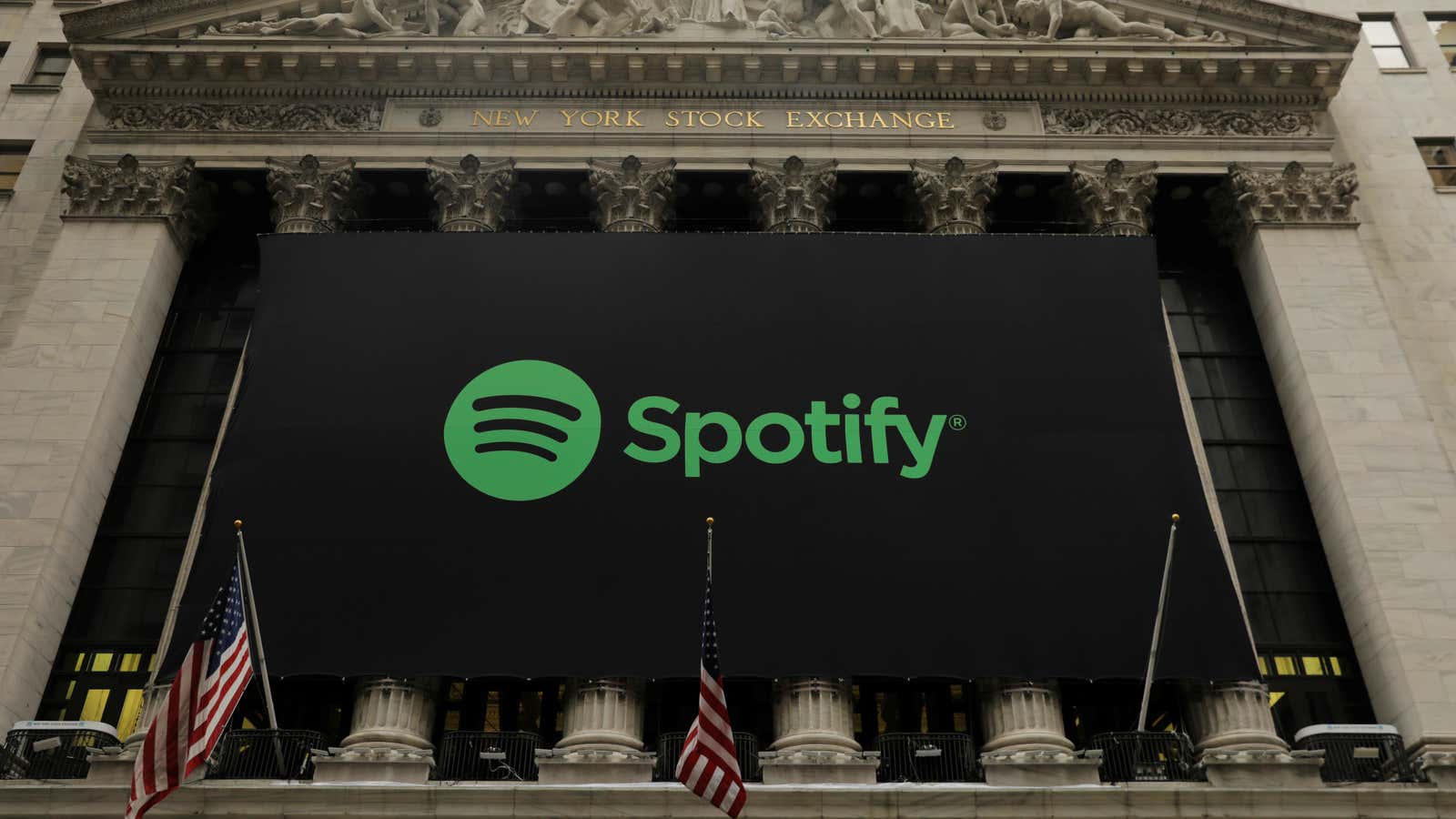Since its founding in 2006, Spotify’s business model has been simple. It takes music owned by musicians and record labels and lets people listen to it for free interspersed with ads or without interruptions for a monthly fee. It passes along most of these revenues to the owners of the music, keeping a cut for themselves.
As Netflix and other content platforms have learned, this middle-man model is not particularly lucrative or sustainable. In Spotify’s case, the record labels have a lot of leverage because if they choose to block their content from the platform, Spotify would basically die. As a result, labels are able to extract about 75% of Spotify’s revenue. Here’s how that’s gone so far:
To make the big bucks—or any bucks—Spotify needs to make its own content. That’s why Spotify announced today that it had acquired the podcasting companies Gimlet Media and Anchor. Gimlet, which cost more than $200 million, according to Recode, is the production company behind hit podcasts like Reply All, Homecoming, Startup, and The Mystery Show. Anchor is a tool for creating and distributing podcasts. Spotify’s push into podcasts didn’t come completely out the blue: last year, it made a small step in to the industry, producing original series with the comedian Amy Schumer and public radio host Guy Raz.
In economics terms, Spotify is making a move to “vertical integration.” This means that a single firm takes ownership of multiple stages in the supply chain of a product before it gets sold. A car manufacturer that uses a lot of steel might look to buy a steel company. This could help it control costs and assure steel supply. It also comes with risks: If the car manufacturer turns out to be bad at running a steel company, it could be more expensive and distracting than simply buying the steel from the outside.
For a platform like Spotify, vertical integration involves both creating and distributing content. In addition to keeping down costs, exclusive content may make it more likely that people will choose to use Spotify over Apple Music, its main competitor. The risk for Spotify is that it won’t be good at running a content company, an issue that may be mitigated by the acquisition of Gimlet, which has proven capable of producing hits.
Netflix and other video platforms have been frantically getting into the content game because, as Vox’s Todd VanDerWerff points out, it’s possible that popular shows may be withdrawn by owners, like Disney, for exclusive use on their own streaming sites. Spotify doesn’t want to be caught in the same situation. In the course of its evolution as a platform, at just 12 years old, Spotify has gotten into original content later than Hulu and Amazon, but sooner than Netflix.
When do platforms make the move to originals?
* Many originals came out around the same time, and we chose this one due to its high profile.
The obvious question is why Spotify is focusing on podcasting, rather than starting a music label, since music accounts for the vast majority of listening on Spotify. Spotify appears wary of angering labels, which remain the streaming company’s most important suppliers. Podcasting offers a less developed, fragmented market where there aren’t the same concerns over competition.
Daniel Elk, Spotify’s CEO, says that he thinks podcasts will make up 20% of customers’ listening time in the future. To that end, Spotify’s foray into the field is just getting started, with the company telling investors that it intends to spends $400-500 million on additional podcast acquisitions this year.
